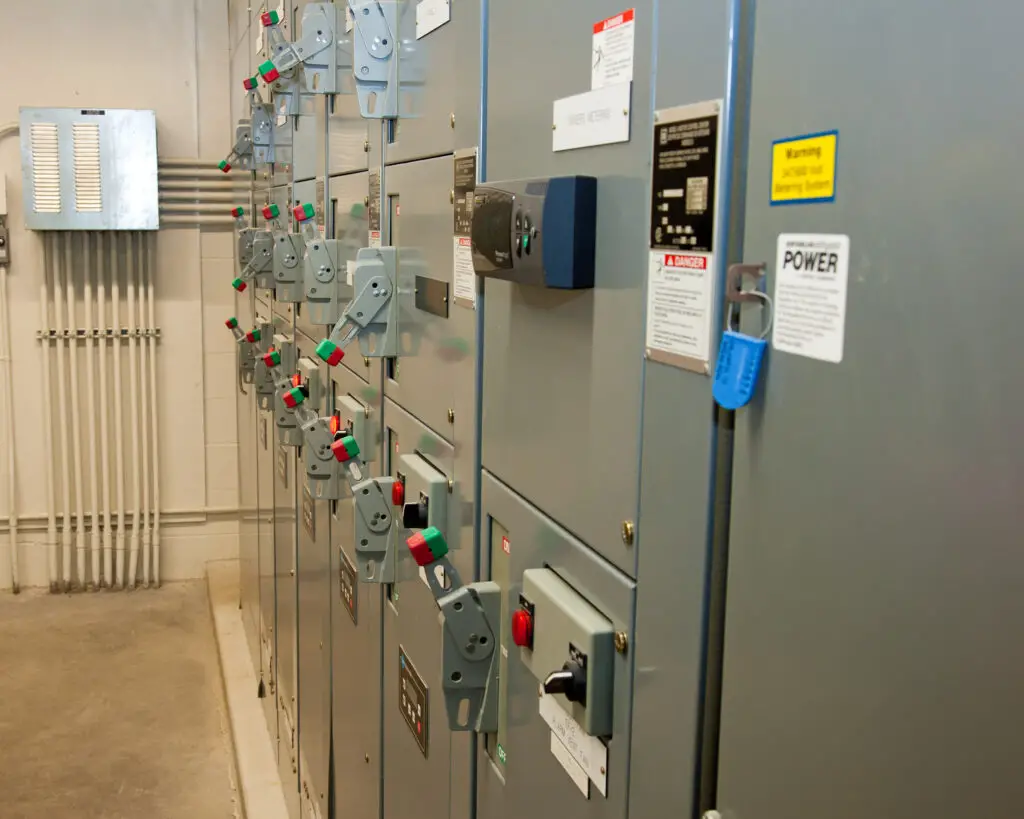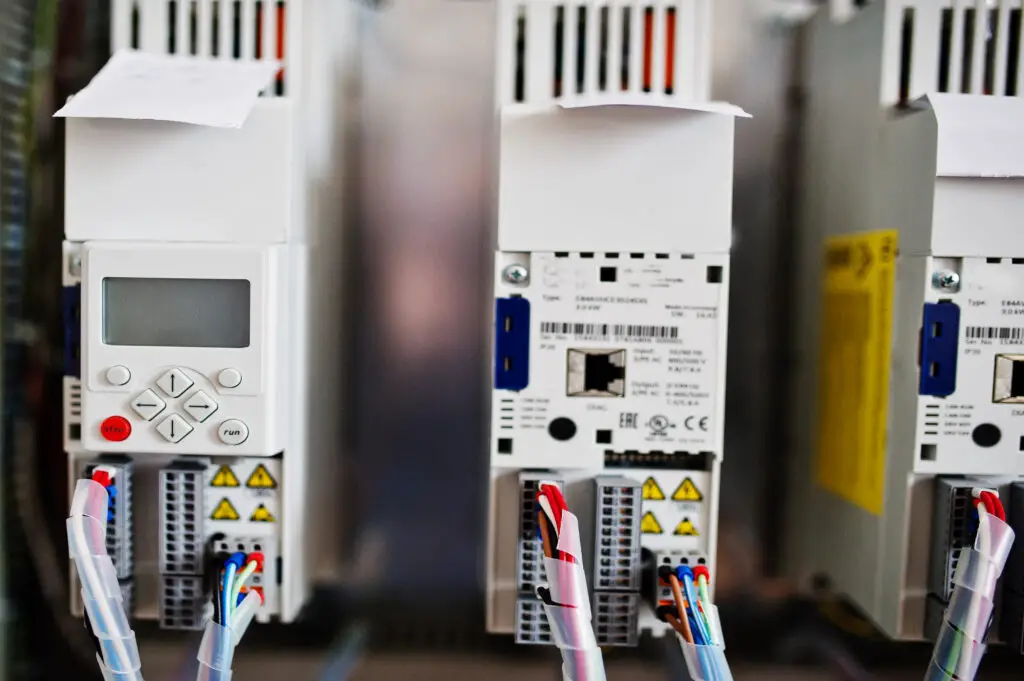In today’s digital age, we rely on network connections more than ever. From checking emails and browsing social media to running businesses and conducting virtual meetings, a stable internet connection is crucial for our daily lives. But what happens when that connection suddenly goes down? The consequences can be disastrous – lost work time, missed opportunities, and frustrated customers. That’s where redundant power supplies come into play. In this blog post, we will discuss the importance of redundant power supplies for network stability and why any business or individual relying on a strong and reliable internet connection should be a top priority.

CONTENTS
- 1. Minimize Downtime
- 2. Enhance Network Reliability
- 3. Protect Equipment and Data
- 4. Facilitate Maintenance and Repairs
- 5. Enhance Customer Satisfaction
- 6. Promote Business Continuity
- FAQ
- How Do Redundant Power Supplies Minimize Network Downtime?
- What Role Do Redundant Power Supplies Play in Network Reliability?
- How Do Redundant Power Supplies Protect Equipment and Data?
- Can Redundant Power Supplies Aid in Maintenance and Repairs?
- What is the Impact of Redundant Power Supplies on Customer Satisfaction?
- How Do Redundant Power Supplies Contribute to Business Continuity?
- Are Redundant Power Supplies Cost-Effective for Businesses?
- How Do Redundant Power Supplies Impact Remote Work and Virtual Meetings?
- What is the Environmental Impact of Using Redundant Power Supplies?
- Can Redundant Power Supplies Support Growth and Scalability in Businesses?
1. Minimize Downtime
Redundant power supplies significantly minimize downtime, allowing network systems to operate without interruption. When one power source fails, the redundant supply instantly takes over, ensuring the network remains functional. This seamless transition prevents disruption to business operations and maintains customer trust.
For businesses that operate on the Internet, even a few minutes of downtime can translate into substantial financial losses. You can buy a programmable DC power source to ensure that your network always has a backup power supply in case of unexpected outages. Frequent downtime can also damage a company’s reputation and credibility, leading to long-term consequences that can be difficult to recover.
2. Enhance Network Reliability
The reliability of a network is crucial, especially for businesses that rely on internet connectivity to serve their customers. Providing an immediate backup when primary power sources fail ensures that the network’s performance remains consistent and predictable. This reliability is crucial for businesses that depend on online services and applications, as it guarantees uninterrupted access to these resources.
Moreover, a reliable network bolsters user confidence, as they can trust the system’s ability to remain online under various circumstances. It also prevents the negative impacts associated with unpredictable network behavior, such as data losses or unsaved work. Therefore, investing in redundant power supplies is a practical, long-term strategy for reinforcing network reliability.
3. Protect Equipment and Data
Power outages and surges can cause severe damage to network equipment, leading to costly replacements or repairs. When a power source fails, it can also result in data loss if the system lacks backup power supplies. This data loss can be detrimental for businesses that rely on critical information stored on their networks.

Businesses protect their equipment and data from potential damage and losses by having redundant power supplies. Additionally, redundant power supplies provide surge protection and regulate voltage levels, ensuring that network systems are not damaged during sudden spikes or drops in power supply. This protection safeguards businesses from expensive equipment replacement costs and helps maintain the integrity of their data.
4. Facilitate Maintenance and Repairs
Network systems often require maintenance and repairs, which can cause disruptions to their operations. However, with redundant power supplies in place, these maintenance tasks can be carried out without causing downtime to the network. The backup power supply keeps the system running while repairs are being made to the primary power source.
Businesses and individuals can perform necessary maintenance or repairs without experiencing network downtime. It also ensures that potential issues with the primary power supply do not interrupt service, maintaining the user’s experience and satisfaction. Thus, redundant power supplies contribute to a smoother, more reliable service, reinforcing their fundamental role in maintaining network stability and efficiency.
5. Enhance Customer Satisfaction
Enhancing customer satisfaction is a vital outcome of implementing redundant power supplies. Customers, whether they are individuals browsing the web or businesses relying on cloud services, expect a stable and reliable service level. Maintaining network connections without interruption leads to improved user experiences, fostering a sense of trust and loyalty.
In contrast, frequent downtime can lead to dissatisfaction and potentially drive customers to seek services elsewhere. Therefore, redundant power supplies contribute significantly to customer retention and satisfaction, reinforcing their importance in any network-based operation. Ultimately, a satisfied customer is a loyal customer, and loyalty is key to the longevity and success of any business.
6. Promote Business Continuity
Promoting business continuity is a critical advantage of implementing redundant power supplies. In power outages or failures, business operations can continue unhindered, ensuring consistent service delivery and minimizing operational risk. With a reliable backup power system, firms can maintain their essential functions during and after a disaster, protecting their bottom line from unexpected disruptions.
It provides a safety net that enables businesses to maintain operational efficiency, meet contractual obligations, and keep customer promises. Moreover, it strengthens a business’s resilience against unforeseen events, thus ensuring long-term survival and growth. Therefore, redundant power supplies are essential to any comprehensive business continuity plan.
Redundant power supplies are essential for network stability and efficiency. They minimize downtime, enhance reliability, protect equipment and data, facilitate maintenance and repairs, improve customer satisfaction, and ensure business continuity. Invest in quality backup power systems to safeguard your network and ensure long-term success. Make redundant power supplies a top priority for your network today.
FAQ
How Do Redundant Power Supplies Minimize Network Downtime?
Redundant power supplies are crucial in ensuring minimal downtime for network systems. When a primary power source fails, the backup instantly takes over, maintaining uninterrupted network functionality. This immediate switch is especially critical for internet-based businesses, where downtime, even for a few minutes, can lead to significant financial losses and damage to reputation. By investing in programmable DC power sources, businesses can provide a continuous and reliable power supply, safeguarding against unexpected outages and maintaining customer trust.
What Role Do Redundant Power Supplies Play in Network Reliability?
Network reliability is significantly enhanced by redundant power supplies. They provide an immediate backup during primary power source failures, ensuring consistent network performance. This reliability is vital for businesses dependent on internet connectivity for customer services and online applications. A reliable network maintains user confidence, prevents data losses, and ensures uninterrupted access to vital resources. Hence, redundant power supplies are a practical investment for long-term network stability.
How Do Redundant Power Supplies Protect Equipment and Data?
Redundant power supplies play a key role in protecting network equipment and data. Power outages and surges can damage network hardware and lead to data loss. By having a backup power system, businesses can prevent such scenarios. These systems not only offer surge protection but also regulate voltage levels, reducing the risk of equipment damage during power fluctuations. This protection minimizes the need for costly equipment replacements and preserves data integrity, crucial for businesses reliant on network-stored information.
Can Redundant Power Supplies Aid in Maintenance and Repairs?
The presence of redundant power supplies is beneficial during maintenance and repairs of network systems. They allow these activities to occur without causing network downtime, as the backup power source keeps the system operational while the primary source is being serviced. This capability enables businesses and individuals to perform necessary maintenance without disrupting network services, maintaining a consistent user experience. Therefore, redundant power supplies are fundamental in ensuring smooth and efficient network operation.
What is the Impact of Redundant Power Supplies on Customer Satisfaction?
Customer satisfaction is greatly enhanced by the implementation of redundant power supplies. Users, from individual web browsers to businesses relying on cloud services, expect a stable and uninterrupted network service. By ensuring continuous network connectivity, businesses can provide a better user experience, fostering trust and loyalty. Frequent network disruptions can frustrate customers and drive them to other service providers. Thus, redundant power supplies are crucial in retaining customers and are key to the success and longevity of any network-dependent business.
How Do Redundant Power Supplies Contribute to Business Continuity?
Redundant power supplies are vital in promoting business continuity. They enable businesses to sustain operations even during power outages, ensuring consistent service delivery and minimizing the risk of operational disruptions. This reliability is essential in maintaining essential functions during crises, protecting the business’s bottom line from unexpected interruptions. Redundant power systems provide a safety net, enhancing a business’s resilience against unforeseen events and supporting long-term growth and stability.
Are Redundant Power Supplies Cost-Effective for Businesses?
Investing in redundant power supplies is a cost-effective strategy for businesses in the long run. While the initial investment might seem substantial, the benefits outweigh the costs. Redundant systems prevent financial losses due to downtime, expensive equipment repairs, and data recovery costs following power outages. Additionally, they contribute to maintaining a positive business reputation, which is crucial for customer retention and business growth. In essence, the cost of redundant power supplies is an investment in ensuring business stability and continuity.
How Do Redundant Power Supplies Impact Remote Work and Virtual Meetings?
In the era of remote work and virtual meetings, redundant power supplies have become increasingly important. They ensure that individuals working from home or participating in virtual meetings have stable and uninterrupted internet connectivity. This stability is crucial in maintaining productivity, meeting deadlines, and ensuring effective communication in a virtual work environment. Businesses that support remote work with reliable network systems, thanks to redundant power supplies, are likely to see higher employee satisfaction and efficiency.
What is the Environmental Impact of Using Redundant Power Supplies?
The environmental impact of redundant power supplies is a consideration for eco-conscious businesses. While they consume additional power, the latest models are designed with energy efficiency in mind. Some systems can intelligently switch between power sources to minimize energy waste. Furthermore, businesses can pair these systems with renewable energy sources to mitigate environmental impacts. The key is to balance network reliability with environmental sustainability, choosing energy-efficient redundant power systems where possible.
Can Redundant Power Supplies Support Growth and Scalability in Businesses?
Redundant power supplies are crucial in supporting the growth and scalability of businesses. As a company expands, its network infrastructure typically becomes more complex and critical to operations. Redundant power supplies ensure that this expanding infrastructure remains stable and reliable, avoiding potential losses due to downtime. This reliability is essential for businesses scaling up their operations, as it provides a stable foundation for growth and helps manage the increased demands on network resources. Thus, redundant power systems are an integral part of a scalable business strategy.

Hey, I’m Jeremy Clifford. I hold a bachelor’s degree in information systems, and I’m a certified network specialist. I worked for several internet providers in LA, San Francisco, Sacramento, and Seattle over the past 21 years.
I worked as a customer service operator, field technician, network engineer, and network specialist. During my career in networking, I’ve come across numerous modems, gateways, routers, and other networking hardware. I’ve installed network equipment, fixed it, designed and administrated networks, etc.
Networking is my passion, and I’m eager to share everything I know with you. On this website, you can read my modem and router reviews, as well as various how-to guides designed to help you solve your network problems. I want to liberate you from the fear that most users feel when they have to deal with modem and router settings.
My favorite free-time activities are gaming, movie-watching, and cooking. I also enjoy fishing, although I’m not good at it. What I’m good at is annoying David when we are fishing together. Apparently, you’re not supposed to talk or laugh while fishing – it scares the fishes.

